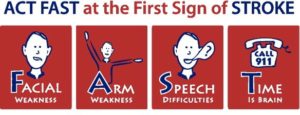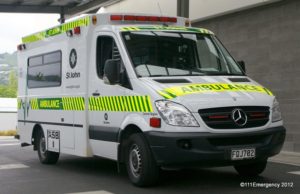When you’re on anticoagulants, you may have concerns that you’re not quite sure about. Should you bother your doctor?
My patients often bring up these concerns towards the end of a visit and start by saying, “Should I be worried, doctor?” It is essential to mention anything that bothers you rather than silently worrying. Some concerns are more important than others. In this post, I look at 5 problems that should not be ignored.
1. My bowel motions are black. Could I be bleeding internally?
If you pass bright red blood or start vomiting blood, it’s obviously an emergency, and you should go to hospital immediately. But if your bowel motions are black, this too could mean bleeding in your bowel. You should be especially concerned if the black motions, known as melaena in medical jargon, are sticky and smell disgusting. Many hospital professionals say they can recognise the distinctive smell of melaena from the next ward. If you feel at all shaky or dizzy, it’s also a cause for concern, and you should be checked out.
Black motions are not always serious. It could just be that you’ve eaten too much liquorice or taken iron pills!
2. Am I having a stroke?
If you’re taking anticoagulants for atrial fibrillation (AF) (which is why most people are on anticoagulants), you have already reduced your risk of a stroke by 80% compared to those with AF not on anticoagulants. AF puts you at risk of stroke because the left atrium of your heart is not contracting correctly, so a clot can form in it. If a piece of the clot breaks away, it can lodge in an artery of the brain and cause a stroke.
If you’re taking anticoagulants, you can also have a stroke because of bleeding in your brain.
Overall, about 1% of people on anticoagulants will have a stroke each year, so it is vital to know the signs, especially as sometimes it is possible to prevent further damage.
The easiest way to remember the signs is the FAST acronym.
FACE – Is their face drooping on one side? Can they smile?
ARM – Is one arm weak? Can they raise both arms?
SPEECH – Is their speech jumbled or slurred? Can they speak at all?
TIME – Time is critical. Call an ambulance immediately.
More details from the stroke association of NZ
3. Is it more dangerous if I’m in an accident?
If you’re in a serious accident, you have a higher risk of bleeding. The doctors will be particularly worried if you have had a head injury as you can get internal bleeding around the brain from trauma. However, warfarin does not make you bleed faster than usual it just slows normal clotting, so without treatment, you will bleed for longer. As long as the doctors know you are on warfarin, you can be given treatment immediately to reverse the effects and stop bleeding.
The same is true for dabigatran (Pradaxa). A reversal agent is available, which can immediately reverse the effects of the drug. Often this is not required for less severe bleeding, as dabigatran clears from the circulation fast. Therefore, it is often reasonable just to wait for the effects of the drug to wear off.
If you take Rivaroxaban(Xarelto), there is no reversal agent available. However, rivaroxaban is rapidly cleared from the circulation (much faster than dabigatran), and standard measures can usually control significant bleeding. Within a few hours, the drug will have cleared, and your blood will clot normally.
I recommend that you carry something with you, either a Medic-Alert bracelet or a card in your wallet. It would be a good idea to also have the information on your mobile phone.
4. Suppose my grandchildren get into my medication?
Overdose of anticoagulants can be dangerous. The overdose may be deliberate if someone is depressed, but it is more common to happen accidentally. For example, children take tablets they find, or you mix up the colours of your warfarin tablets and take too much. If your grandchild takes your tablets, you should seek advice as soon as possible. Accidentally taking warfarin is not usually too dangerous as the drug takes some time to have an effect and can be reversed with vitamin K, but medical attention is necessary.
An accidental overdose of dabigatran or rivaroxaban is more serious as these drugs act very quickly, and more urgent attention may be needed.
5. I’ve got Chest pain
Chest pain is always taken very seriously by staff in emergency departments, as rapid assessment and diagnosis can save lives. Two important causes of chest pain in people who have a history of blood clots are
- Pulmonary embolism
- Heart attack
The pain from a pulmonary embolus tends to be anywhere in the chest, sharp and stabbing and linked to taking a deep breath. The pain from a heart attack tends to be in the centre of the chest, constant, heavy and crushing. If you are feeling unwell and have chest pain, you should always get it checked out.
Have you ever mentioned any of these concerns to your doctor, or have these events occurred for you? What happened? Did you get the right sort of attention?






Leave a Reply